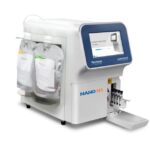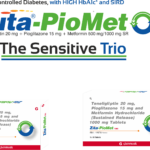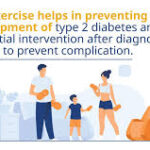HbA1c level has decreased in Bengaluru during October-December 2019 -according to the latest findings of India Diabetes Care Index


The average postprandial glucose level, i.e. the average ‘post-meal’ glucose level was recorded at an alarmingly high 245.48 mg/dL. The uncontrolled diabetes is known to increase the risk of cardiovascular diseases (CVD) by 2 to 4 times. The India Diabetes Care Index, a part of the ‘Impact India: 1000-Day Challenge’ programme by Novo Nordisk Education Foundation studies the blood glucose levels across cities through various parameters.


Speaking about the status of diabetes control in Bangalore, Dr Mohan Badagandi Endocrinologist & Diabetologist Manipal Hospital Bangalore says, “While it is good to know that the HbA1c levels have marginally decreased in the city, the average high ‘post-meal’ glucose level is a matter of great concern.Blood glucose levels after a meal rise mainly because people consume high carbohydrate content in their diet. This post-meal spike in blood glucose level increases the chances of cardiovascular disease and death. Post prandial blood glucose values lead to other biochemical changes in LDL, triglycerides, platelets and increased thickness blood. So, post-meal glucose levels should be measured and corrected, and it will go a long way in decreasing cardiovascular residual risk. This can be done through a combination of right diet, exercise and appropriate treatment.”
India has more than 77 million people living with diabetes which leads to nearly 7.09 million cases of diabetes related heart disease.The HbA1c test indicates the average blood glucose level over a period of 3 months and is considered as one of the best recommended indicators of long-term blood glucose control. Nearly 1800 people with an average age of 53 years were part of the assessment in Bangalore, out of which 53% were male and 47% were female. These patients are at a higher risk of developing complications involving heart, kidney, eyes besides many others if their diabetes is not managed well. It should be noted that 1% reduction in HbA1c can reduce the risk of heart failure by 16% and the risk of heart attack by 14%.


The ‘Impact India: 1000-Day Challenge’ programme was launched in 2018 to address the issue of sub optimally controlled diabetes in India. The ambition of the programme is to reduce the national average of HbA1c by 1%, which can help reduce the risk of diabetes-related complications significantly in India. iDCI® (Indian Diabetes Care Index) was introduced in 2018 as a part of the programme to improve diabetes care in the country.
Based on big data analytics, iDCI® has been providing a real-time view of the average HbA1c in India across select cities. Under the Impact India programme, digital platforms are being leveraged to partner with healthcare practitioners (doctors and paramedics) to evolve and implement an approach to diabetes care appropriate for India. iDCI® is a dynamic tool that not only tracks the status of diabetes care but also helps to increase awareness, motivate and sensitise the healthcare professionals (HCPs) and society.The IMPACT India programme will continue its three-pronged approach over the next two years through interactions with healthcare practitioners (HCPs), societal/patient engagement and monitoring.
For more information visit: nnef.in













